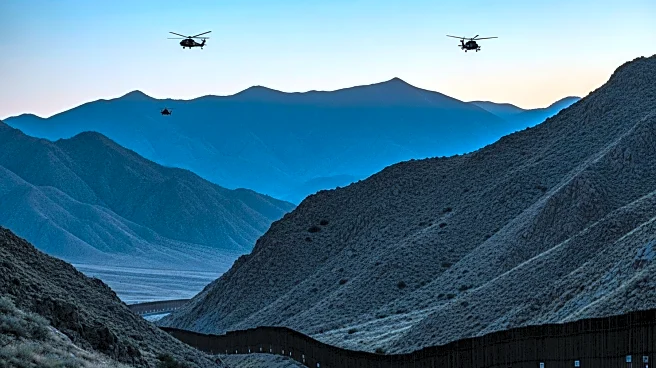What's Happening?
Afghan security forces launched a significant operation against Pakistani border posts, claiming to have killed 58 Pakistani soldiers. This action was described as a response to repeated violations of Afghan territory and airspace by Pakistan. The Taliban government reported capturing 25 Pakistani army posts and wounding 30 soldiers. Pakistan, however, reported lower casualties, stating that 23 troops were killed. The clashes have led to the closure of key border crossings, including Torkham and Chaman, affecting trade and movement between the two countries.
Why It's Important?
The escalation in border tensions between Afghanistan and Pakistan could destabilize the region further, especially given the historical context of conflict between the two nations. The closure of border crossings impacts trade and the movement of refugees, exacerbating humanitarian issues. Additionally, the involvement of regional powers like India, which has strengthened ties with Afghanistan, adds complexity to the geopolitical landscape. The situation could lead to increased militancy and further strain relations between neighboring countries.
What's Next?
The situation remains tense, with both countries poised for further military actions if provocations continue. Regional powers, including Saudi Arabia and Qatar, have called for restraint and dialogue to prevent further escalation. The Taliban Foreign Minister, currently in India, has expressed a desire for peaceful resolution but warned of potential retaliatory measures if peace efforts fail. The international community may need to intervene diplomatically to prevent a broader conflict.
Beyond the Headlines
The conflict highlights the fragile nature of regional security and the potential for proxy battles involving larger powers. The historical dispute over the Durand Line, which Afghanistan has never recognized, continues to be a source of tension. The situation also underscores the challenges faced by Afghanistan in maintaining sovereignty and security amidst external pressures.










